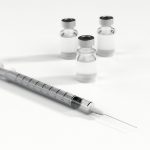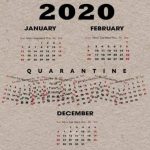COVID-19 Vaccine. Do We Have Enough Glass Vials and Syringes?
Posted by Phil Heler on October 10, 2020The Hidden Logistics of a COVID-19 Vaccine; ‘Vials and stoppers are only trivial if you have them. If you do not have them, they cease to be trivial. A shortage of any one of those will act as a bottleneck.’
Much of the current global focus is on a COVID-19 vaccine and how fast we can deliver it. Rightly so because therein lies the promise of normal life and the end of disruption. That is unless you are in the food delivery business which has seen unprecedented growth. Deliveroo has more than doubled its workforce this year from 25,000 to 55,000 and Ocado saw revenues increase in the last quarter by 52% to £587.3m compared with £386.4m in the same period last year. In the general population however we all want an end to our life of face masks, hand sanitiser, social distancing, and rules that nobody understands (including Boris Johnson).
I am not surprised Boris does not understand his own rules because they are clearly confusing. Some of the new restrictions include a decree that all pubs in England must keep music under a certain level and that hospitality venues have to ‘take all reasonable measures’ to stop singing. Then there are the exemptions from the government ‘rule of six’ such as grouse shooting and hunting. The news sparked derisive comments on Twitter. One parent commented: ‘Looks like my youngest is going grouse shooting with his friends for his third birthday. Thanks Tories!’
Medical Grade Glass for a COVID-19 Vaccine is not just Any Old Glass
The world’s attention has been on the current clinical trials for a COVID-19 vaccine. These are underway and the speed within which they will be proved safe and passed by regulatory authorities. But there is much more to delivering a COVID-19 vaccine than meets the eye. None of this is possible without small essential things that are ridiculously simple and prosaic. A good example is a glass vial (and its stopper) which sound innocent enough at face value, but it is critical for vaccine delivery.
While many businesses in the UK and Europe remained shut in April there were notable exceptions. At the height of lockdown, while Deliveroo staff were busy cycling/scootering to deliver your next pizza or takeaway, in Piombino Dese, a small town about 20 miles outside of Venice in Italy, a glass manufacturer continued at full steam ahead. Here the Stevanato Group continued to churn out millions of vials and syringes that one day will house doses of a COVID-19 vaccine.
The firm hired more than 580 new workers in the first six months of 2020. Even before COVID-19 last year, the global pharmaceutical industry purchased some 12 billion vials. The Stevanato Group, a 71-year-old family-owned firm, provided more than 2 billion of those. They expect the pandemic to drive up demand for its glass vials by 20% over the next two years.
Any COVID-19 vaccine has the basic requirement to be packaged in sterile glass. But the glass vials are not made of any old glass. Glass is essentially impermeable to oxygen which would otherwise render any vaccine unusable. Medical grade glass vials are made from specialised glass because they must withstand the low temperatures of cold chill chain logistics whilst being robust enough to be shuttled all around the globe.
These demands require a glass called borosilicate glass. Borosilicate glass is made up of about 15% boron trioxide, which is that magical ingredient that completely changes the behaviour of glass and makes it what is known as ‘thermal shock resistant’.
This allows the glass to resist extreme changes in temperature and it can go straight from a freezer to an oven rack without cracking. This makes it the glass of choice for sensitive medicines like vaccines. They house anywhere between 2ml to 100 ml of liquid COVID-19 vaccine and are usually 45mm tall and 11.5mm wide. The production process requires procuring sand, melting it down in large oven-like tanks, reforming glass into tubes, and then shaping it into vials or syringes, all before sterilization and then additional packaging.
Even when you have the vials there is then the COVID-19 vaccine bottling process (called ‘fill and finish’) which can also cause delays. Governments and drug companies around the world are placing huge orders worth hundreds of millions of dollars and pushing the makers of vials and syringes to add manufacturing capacity. In response to any ensuing shortages the manufacturing sector has in general currently decided to produce 10 ml vials for COVID-19 which can apparently hold 8-15 doses of vaccine in order to conserve glass. Normally for most vaccines, single dose vials or single-dose pre-filled syringes are used.
How Many Glass Vials and Syringes do we need?
Given that vials are so essential to the COVID=19 vaccine supply chain, alarms have been raised of a potential shortage, especially if distribution coincides with flu vaccine delivery. So exactly how many borosilicate glass vials do we need for COVID-19? The answer is mind boggling! To obtain ‘herd immunity’, as many as 5.6 billion of the world’s 8 billion people will need to receive a vaccine.
To be effective, a second COVID-19 vaccine dose is required a month or so later for many of the vaccines under development. That means more than 11 billion individual doses may be needed to defeat COVID-19. Let us not forget of course that we need syringes as well!
So currently, as well as the COVID-19 vaccine itself, there is also a parallel desperate urgency to ensure that enough medical grade glass vials and syringes will be available. Awi Federgruen, a professor of logistics and supply chain management at Columbia University comments ‘Vials and stoppers are only trivial if you have them. If you do not have them, they cease to be trivial. A shortage of any one of those will act as a bottleneck.’
Where will all the Vials and Syringes come from?
The Coalition for Epidemic Preparedness Innovations (CEPI) have already been looking at the supply chain for COVID-19 vaccine distribution and they have identified the supply of borosilicate glass as a limiting factor. Despite this Europe’s largest glass manufacturers including the Stevanato Group, Gerresheimer and Schott issued a statement earlier this year to assure the public that global demand will be met.
Stevanato for instance have already signed an agreement with the Coalition for Epidemic Preparedness Innovations (CEPI). This deal will see them supply 100 million Type 1 borosilicate glass vials to hold up to two billion doses of a COVID-19 vaccine. They also have undisclosed deals with other major vaccine companies. The glass vials that CEPI have secured from Stevanato Group are slightly bigger than normal and will be able to store 20 doses per vial (2 billion doses in total).
Meanwhile German glass manufacturing giant SCHOTT AG is manufacturing enough vials to hold up to 2 billion vaccination doses. SCHOTT is investing more than $1 billion to increase production of borosilicate glass, and purchase machinery so that it can produce 500 to 1 billion vials specifically for the coronavirus pandemic response efforts. The largest of its 12 factories can already produce 12 million vials per week.
SCHOTT has reached agreements with several leading pharmaceutical companies, including key players in India. The global agreements mean that the first vials are already being delivered to companies in Asia, North America and Europe. At this stage it would appear that large companies in vaccine development have already procured their supply of glass vials but smaller companies could be left empty handed.
One of the countries that has been concerned by the supply issue of borosilicate glass vials has been the U.S as 70-80% of glass vials are elsewhere. Therefore, as part of ‘Operation Warp Speed’ it has signed contracts of $204 million with Corning Incorporated, a glass maker in New York and $143 million with an Alabama company, SiO2.
The latter makes specialised plastic pharmaceutical vials that the company says withstand breakage and do not require manufacturing by using the extreme heat of a glass furnace. SiO2 will provide 120 million vials for U.S. domestic priorities by the end of 2020 and as many as 1 billion by April 2021 — which could satisfy a large portion of the surge in global demand. There are also other contracts in place with syringe suppliers inside the U.S.
The world awaits a COVID-19 vaccine to conquer the coronavirus. However, finding or developing it is only half the battle. Succeeding in the Herculean task of ensuring access to the COVID-19 vaccine and enabling immunisation at an unprecedented speed and scale is crucial but it is easy to forget there are many elements in the supply chain.





